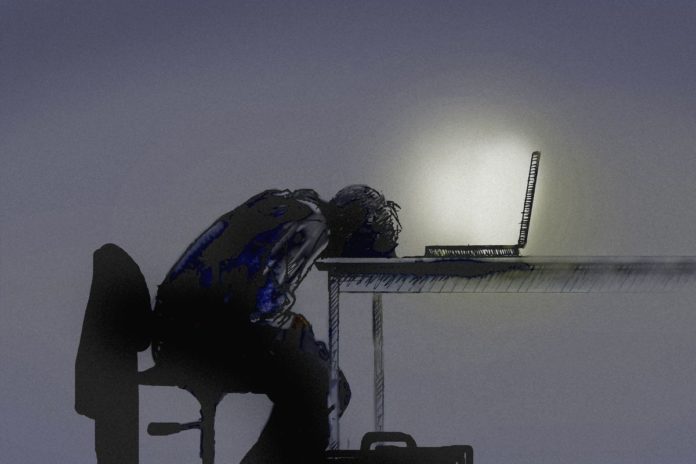The importance of sleep is not lost on anyone but despite the awareness, there are many who sacrifice this critical requirement for all-round well-being.
A new study of mortality rates of nearly half a million people finds that individuals who strongly preferred to stay up late were more likely to be dead at the end of a six-and-a-half-year period.
The findings, described in the journal Chronobiology International, offer the first study linking mortality risk to night-owl sleep habits, according to the authors. The results could help researchers better understand another aspect of the role that circadian rhythms play in human health.
Scientists have long studied whether night owls are saddled with health impacts — some research has linked a preference for sleeping late to higher rates of diabetes, heart disease and obesity, among others. But little was known on whether there was a link between sleeping late and the ultimate outcome: an earlier death.
“We wanted to see whether this translated also into an increased risk of mortality and no one had done that before,” said lead author Kristen Knutson, an anthropologist at Northwestern University.
The researchers were able to study the health outcomes of 433,268 people from ages 38 to 73 using data from a cohort study called the UK Biobank Study. They sorted people by whether they were definite morning types (aka “morning larks”), definite evening types, moderate morning types or moderate evening types.
They compared the different types, adjusting for a range of factors including the study participants’ age, sleep duration and existing health problems. The results showed that by the end of 6.5 years, the definite evening types were about 10% more likely to have died than the definite morning types, Knutson said.
“What we found is that the night owls, the definite evening types, were the ones that were at increased risk of mortality compared to the definite morning types — and the middle groups really weren’t,” she said. “So it was really something about being a true evening type that was problematic.”
It’s unclear exactly why night owls are more likely to die than the early risers in this time period — and the study only established a correlation between the two, not cause and effect. But the researchers had some ideas.
“We think the problem is really when the night owl tries to live in a morning-lark world,” Knutson said. “So they want to be up late but they have to be up early for work and so the time that they’re doing things, like waking up or eating, is not at the correct time for them.”
That tension between an evening person’s preferred routine and the routine of their environment also tends to lead to more irregular schedules, she added.
“The mismatch between their internal biological clock and their behavior and environment is problematic, especially in the long run,” Knutson said.
Six ways to get better sleep
Regular rules
It is not, however, all about duration. Our bodies do different things during different sleep phases, which are characterised by different brainwave patterns. REM sleep has been linked to learning and memory, while growth hormone is released during deep sleep. One of the best ways to boost sleep quality is to maintain regular sleep times. A US study published last year found that students with irregular sleep patterns get lower academic grades .
Mind the nap
What did Albert Einstein, Margaret Thatcher and Salvador Dali have in common? They were all enthusiastic nappers. Sleeping for 10-20 minutes after lunch can be restorative, although longer naps, especially in the late afternoon or evening, can undermine night-time sleep.
Cut the caffeine
Caffeine blocks the build up of sleep-inducing chemicals in the brain. Research suggests leaving at least six hours between your last coffee and bedtime, although the time it takes to break down down varies from person to person.
The dark side of light
Body clocks in almost every cell in the human body use signals about light levels to control fluctuations in things such as hormone levels, temperature and metabolism.
Studies have shown that melatonin is released earlier and sleep duration is longer in societies that live without electric light. Candlelight may not be practical, but dimming bright lights in the run up to bedtime helps your body prepare for sleep. Using tablets, phones and televisions late at night does the opposite.
Do sweat it
Research has shown that working out can boost sleep. A review of 34 studies involving almost 2,000 participants found exercise shortens the time it takes to nod off and improves sleep duration and quality.
However, Japanese researchers found that vigorous running an hour before bedtime cuts sleep length, while moderate exercise does not. “Regular exercise during the day or evening is a great way to improve sleep, but within two hours of bedtime it releases hormones that can lengthen the time needed to get to sleep,” says Shadab Rahman , a sleep researcher at Harvard Medical School in Boston, Massachusetts.
Make a sleep sanctuary
Ensure your mattress and pillows are comfortable and supportive. If you are sharing, you are likely to sleep better in a 1.8 metre-wide super king than a 1.4 metre-wide double. Thick curtains or blackout blinds can also help. Body temperature drops during sleep, so 16-18C is about right. Keep your bedroom clean and clutter-free. Soothing scents may put you in the right mood for a good night’s sleep.



















































